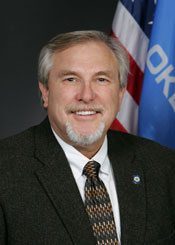BY DAVID PERRYMAN
 Gulliver’s Travels’ author Jonathan Swift was born in Dublin, Ireland in 1667. He was a priest, a poet and a satirist. Among his lesser-known works was a 1729 essay, formally named A Modest Proposal for Preventing the Children of Poor People From Being a Burthen to Their Parents or Country, and for Making Them Beneficial to the Publick. The work is commonly referred to as A Modest Proposal.
Gulliver’s Travels’ author Jonathan Swift was born in Dublin, Ireland in 1667. He was a priest, a poet and a satirist. Among his lesser-known works was a 1729 essay, formally named A Modest Proposal for Preventing the Children of Poor People From Being a Burthen to Their Parents or Country, and for Making Them Beneficial to the Publick. The work is commonly referred to as A Modest Proposal.
Swift, as dean of Dublin’s St. Patrick’s Cathedral, was deeply aware of the harshness of the new industrial age where young children and the very elderly were burdens on society unless they were able to perform hard daily labor. Eighteenth century Ireland was a time and place where employers treated laborers of all ages as mere commodities that were readily disposable when injury, age or infirmity “damaged” or wore them away.
According to Swift, wages were kept low because higher wages could translate into greater independence and the possibility that workers would be inclined to work fewer hours. Unfortunately, families in poverty produced children in poverty who had little means to rise above their state of hunger and despair.
The essay reported the overwhelmingly melancholy feeling one received when passing town after town and seeing crowds of ragged children begging for handouts. It also lamented the unproductivity of young mothers who bore child after child and were unable to work because their waking hours were spent begging sustenance for their infants, who likely would just mature into thieves.
Swift submitted that these conditions were such a national scourge that anyone who could bring forth an inexpensive and trouble free method for making these children sound, useful members of the commonwealth would not only preserve the country, but would be deserving of a monument to his legacy.
Today, nearly one in four of Oklahoma’s children [23.5%] live below the poverty line [USDA Food and Nutrition Service, 2013] and are food insecure.
Undernourished kids are more apt to be sick for longer periods and develop more serious illnesses [Children’s Health Watch]; experience more headaches, stomachaches, colds, ear infections and fatigue [National Institutes of Health]; and are more susceptible to obesity and the harmful health consequences of that obesity [JAMA Pediatrics].
Children who do not receive adequate amounts of nutritious foods have significantly higher levels of behavioral, emotional and academic problems and tend to be more aggressive and anxious. Teens who are underfed are more likely to be suspended from school and encounter difficulty in getting along with other kids [Harvard School Breakfast Research Summary].
Education Week’s Quality Counts 2016 national report card was released a few days ago and the news is not good. When analyzing factors to determine the chance for student success when they grow up, academic achievement and school funding, Oklahoma ranks 47th in the country and received a disgraceful “F” on school spending.
The numbers also show that 6% more Oklahomans work year round in full time jobs than the national average, but because wages are low, income is far below the national average and children in Oklahoma are 7.5% more likely to live in households having incomes near or below the poverty level.
While it is true that in 2016 our children are not panhandling in street medians, the endless raffles and sales of cookies, candies and trinkets to help public schools make ends meet do get tiresome.
Oklahoma has as great a need for leadership to address its 21st Century scourge as Ireland had in 1729. Satirically, Swift communicated that the only convenient and affordable way to address Irish juvenile poverty was to allow wealthy citizens to consume the children as delicacies.
In Oklahoma however, we profess to be a Godly people in a Christian nation rooted in equality. We could never be so callous, uncaring or indifferent as to deny anyone their inalienable right of Life, Liberty and the pursuit of Happiness, even if such denial were convenient, expedient or might allow the state to cut the personal income tax rate for the wealthy or give millions of dollars in tax credits to corporations or allow corporations to have a 100% intangible property tax exemption … or so we profess.
– David Perryman, a Chickasha Democrat, represents District 56 in the Oklahoma House








